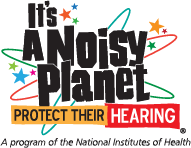Did you know that musical training can have benefits for young students’ brains? Nina Kraus, Ph.D., and her colleagues at Northwestern University have good news for teens! Their research showed that even if teens are not exposed to musical training until high school, they can still garner significant benefits from musical training.

Dr. Kraus and her team assessed the sound- and language-processing abilities of a group of incoming high school freshmen. The students then enrolled in either a band class or a Junior Reserve Officers’ Training Corps (JROTC) fitness program, and their brain responses to sound were tracked over time.
The researchers found that, within three years, not only did the students in the musical training program have more adult-like responses to sound than their JROTC student counterparts, but their brains were also responding to sound more consistently—a characteristic that is usually lost as a person progresses through the teenage years. The band students were also better able to pick out sounds from background noise than their peers. Both the band students and the JROTC students had improved “phonological awareness” (a term to describe one component of language skills) after three years, but the band students improved more. This suggests that musical training for high school students may also have a positive impact on their literacy down the road.
In other words, musical training isn’t just good if you want to become a professional musician, but can play a positive role in lots of ways, regardless of future career choice.
The authors mention that JROTC requires mental discipline and may contribute to students’ attentional skills. Both activities, therefore, may have benefits for teens.
You can read more about this research here:
Last Updated Date



